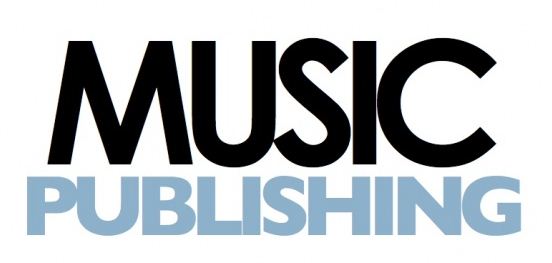During my long career as an entertainment attorney in the music industry, one of the most common questions I received was about the process of music publishing. As an experienced professional in this field, I was able to guide my clients through the complex process of ensuring that their rights were protected, and their music was monetized to the fullest extent possible. While there is no one-size-fits-all approach to publishing music, I worked with my clients to identify the specific steps that were necessary to achieve their goals. Now that I am semi-retired from the music biz, I often reflect on the valuable lessons I learned and the successful outcomes I was able to achieve for my clients during my time in the industry. I’d like to share 5 steps to music publishing that every producer and songwriter should know.
1. Copyright your songs.
The first and most important step in the music publishing process is to ensure that your songs are properly copyrighted. In the United States, copyright protection is automatic when you fix your song in a tangible form, such as by writing it down on paper or recording it on your phone. However, registering your copyright with the U.S. Copyright Office can provide additional legal protections and make it easier to enforce your rights in court if necessary.
Registering your song with a third-party registration service is a faster and cheaper way to protect your songs online. It’s simple and easy to do. One of the most reputable and well-established song registration services is VeriSong.com. Enrollment is free, and they also provide music placement services to their members.
2. Choose a music publishing company.
Once your songs are copyrighted, you will need to decide how you want to publish and distribute your music. One option is to sign with a traditional music publishing company, which will handle the licensing and distribution of your music in exchange for a percentage of the royalties. These companies often have relationships with music supervisors and other industry professionals, which can help you get your music placed in film, television, and other media.
One of my clients, an up-and-coming singer-songwriter, benefited greatly from having a music publishing company on her team. She had written several catchy and innovative songs but struggled to get them placed in film and television. By signing with a music publishing company, she was able to leverage their relationships with music supervisors and other industry professionals to get her music placed in a number of high-profile projects. This not only brought her music to a wider audience but also generated significant income through sync licensing fees and performance royalties. Without the support of a music publishing company, it is likely that my client’s music would not have received the exposure and monetization that it did.
3. Join a performing rights organization (PRO).
In addition to registering your songs with the copyright office or VeriSong and signing with a publishing company, you will also need to join a performing rights organization (PRO). PROs are responsible for collecting and distributing performance royalties on behalf of songwriters and music publishers. In the United States, the three major PROs are ASCAP, BMI, and SESAC. By joining a PRO, you can ensure that you are paid for any public performances of your music, including when it is played on the radio or in a live venue.
I have seen firsthand the importance of registering with a performing rights organization (PRO) for songwriters who want to get paid. One day I received a call from a songwriter who had written a song that was featured on a popular television show. However, because he wasn’t registered with a PRO, he didn’t receive any performance royalties for the use of his song on the show. I was able to help him resolve the issue eventually, but it was a costly mistake. To ensure that they are being properly compensated for the use of their music, it is essential for songwriters to register with a PRO such as ASCAP, BMI, or SESAC. By doing so, they can ensure that they receive performance royalties for any public performances of their music, including when their song is played on the radio or in a live venue.
4. Protect your rights with contracts.
As you begin to license and distribute your music, it is important to protect your rights with contracts. This includes contracts with publishing companies, record labels, and any other parties involved in the distribution of your music. Be sure to have a lawyer review any contracts before signing them, as they can often be complex and may contain provisions that are not favorable to you.
I’ve have had the pleasure of helping many songwriters get paid for their hit songs through the use of well-crafted legal contracts. One particularly memorable example was a client who had written a song that was recorded by a major artist and released as a single. The song became a huge international hit, garnering billions of streams and radio play around the world. Due to the thorough contracts that were in place, my client was able to receive a significant portion of the song’s royalties worldwide, which provided a significant financial boost for his career. Without these contracts in place, my client may not have received the fair compensation that he deserved for his hard work and creativity. This highlights the importance of having a lawyer review and negotiate contracts in the music industry.
5. Monitor your royalty statements.
The final step in the music publishing process is to monitor your royalty statements to ensure that you are being properly paid for the use of your music. This can be a complex and time-consuming task, but it is essential to ensure that you are being fairly compensated for your work. If you are unsure how to interpret your royalty statements, consider hiring a lawyer or music industry professional to help you navigate the process.
I had a client who was a talented songwriter but struggled to collect publishing royalties due to disorganization. Despite having several songs that were being widely performed and recorded by other artists, my client had difficulty keeping track of which songs were being used and where they were being performed. This made it difficult for her to accurately monitor her royalty statements and identify any discrepancies. As a result, she was often underpaid or not paid at all for the use of her songs. By working with me to get her paperwork and records in order, my client could take control of her publishing royalties and ensure that she was properly compensated for her work. This underscores the importance of staying organized in the music industry, especially when it comes to tracking the use of your songs and collecting royalties
While there is no one-size-fits-all approach to publishing music, there are a few key steps that every producer and songwriter should follow to ensure that their rights are protected and that they are able to monetize their work fully.
In conclusion, music publishing involves several complex legal and business considerations. By following these five steps, you can ensure that your rights are protected and that you are able to monetize your music to the fullest extent possible.








